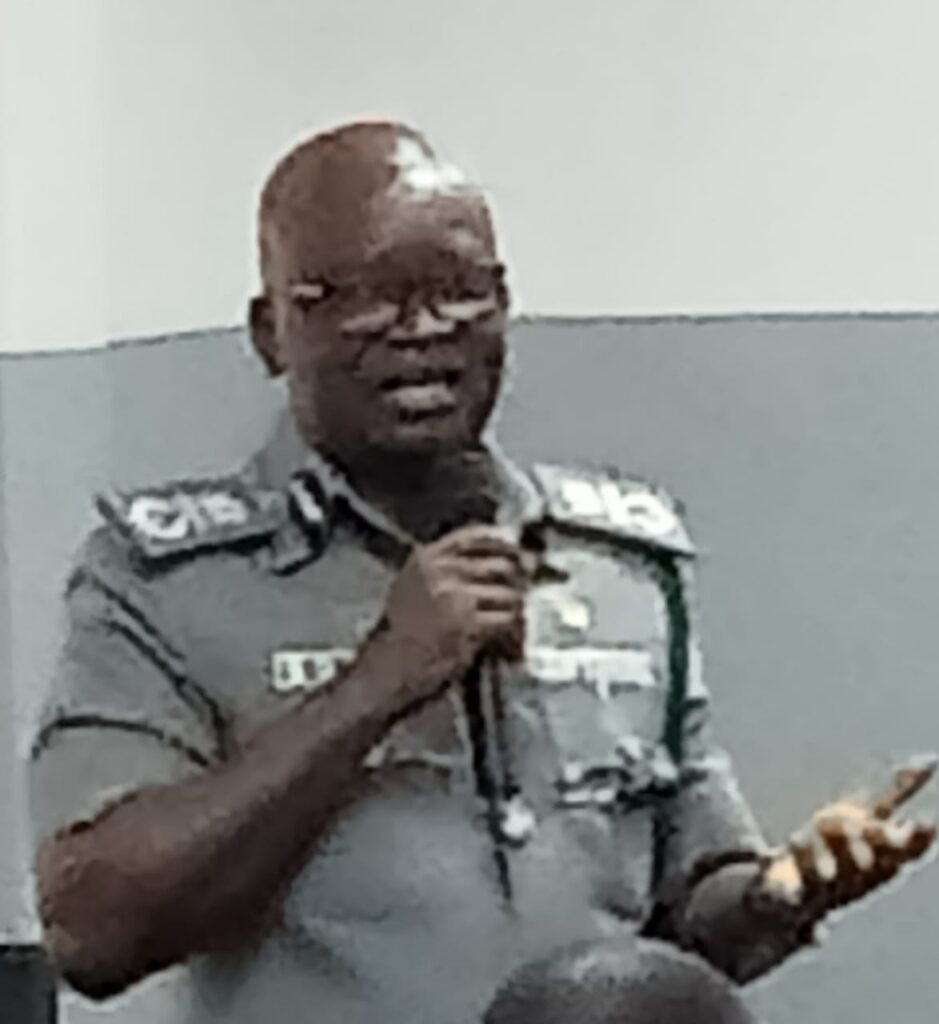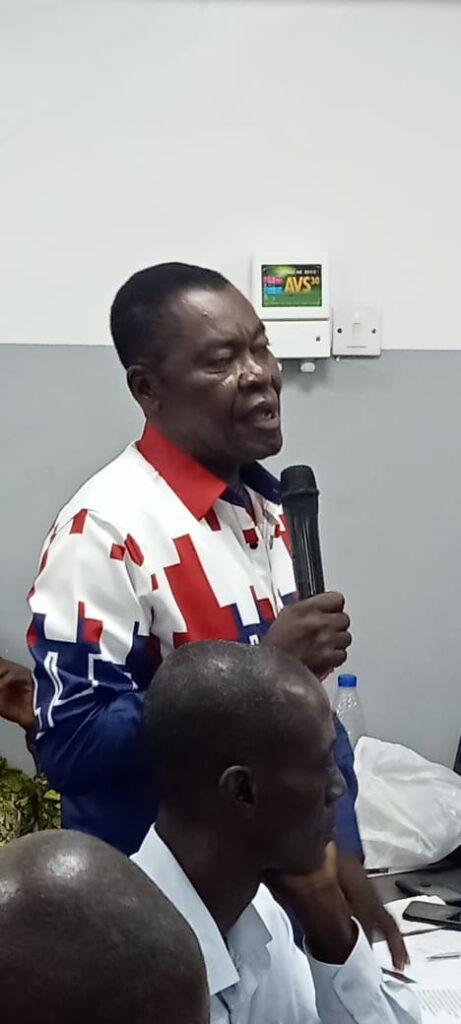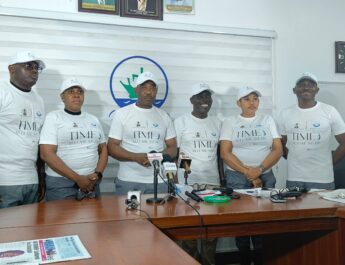By Jude Nzennaya Port Harcourt
The non-conformity to statutory procedures and other vices in clearance processes by freight forwarders and clearing agents in the maritime industry constitute a major challenge, as the Nigeria Customs Service (NCS), Zone C, Port Harcourt organized a-one day sensitisation workshop to address the issue.
 Addressing participants at the event, the Zonal Coordinator of Zone C, Port Harcourt, ACG Olugboyega
Addressing participants at the event, the Zonal Coordinator of Zone C, Port Harcourt, ACG Olugboyega
Peters said the workshop has become necessary owing to series of infractions arising from non-conformity to the statutory procedures of the Nigeria Customs Service.
According to him, this, has in no small measure affected the operations of the Service and by extension reduce the revenue target of the Zone. The ACG therefore urged the stakeholders and their agents to take seriously the sensitization workshop in their own interests to improve on their operations.
He emphasized that there is no end to education and as such participants should make maximum use of the opportunity offered by the programme.
Peters also stressed the need to exhibit integrity and transparency in all their dealings, noting that it pays to be diligent in every activity we perform.
“There is no end to education, hence the essence of the sensitization workshop. Integrity and
transparency are important in port operations as nothing stops a container from leaving the port in 48hrs if the right thing is done at the right time by inserting the right code while filling the documents. You can only do that with proper education. So I was happy to hear that training was coming,” the ACG said.
He urged freight forwarders to be attentive and make maximum use of the sensitization workshop that on their own should organize such program from time to time educating their staff and those handling their operations.
Also speaking, the Customs Area Comptroller (CAC) Area 1 Customs Command, Chedi Wada said it is important to seek for knowledge, pointing out that the Nigeria Customs Service as a stakeholder will continue to engage with the agents to ensure smooth operations at the ports. He tasked the agents and stakeholders to partner with the NCS, stressing that the Service operates an open-door policy that accommodates partnership. The CAC reminded the agents that it is important for them to have Customs’ licence and be acquainted with the statutory procedures of the NCS.
Wada also tasked the agents on the need to increase their capacity to be able to function effectively. “You must operate professionally, as Customs is making infractions narrower for offenders by the day. So let us try and comply with the Customs’ Statutory Operating Procedures”.
On his part, DC Nwaosu, while calming down stakeholders down over the comments made by the Officer in charge of shade 2, Nwaosu said” I think his intension was not to cast aspersion on anyone or the agents even if there was wrong use words we take full responsibility and we apologize but one thing I must emphasize is that the fact is that in most cases we see a situation where by people take jobs they no nothing about, you see people who cannot explain answer questions regarding the work they are doing and you all can attest to this fact, the freight forwarder, clearing business is a distinguish profession. Back in the days agent and customs learn from each other through interaction and ideas and that is what we want to bring back rather a situation where someone will and tell you that the documents he filed is a mistake by the person that captured it, master your documents and be sure of what you are entering is in conformity with Les down procedure”, he said.
While delivering his lecture on Non-conformity with Statutory Procedures the Guest Lecturer and Chief Superintendent of Customs (CSC) J. Atile said, it is important to follow statutory procedures in carrying out our operations, as non-compliance often results to high cost of productivity and loss of revenue. He pointed out that failure to follow laid down procedures attracts sanctions.
He however pointed out some cases where agents input wrong code in there documents knowing fully well that there are conditions attached to it.
Atile said Customs Procedure Code (CPC) is very important in cargo clearance, thereby making it indispensable for Customs and agents. This, he said has underscored the essence of the sensitization workshop.
In his vote of thanks, chairman of NAGAFF, area 1 chapter, Comrade Ngozi Uzoho who described the sensitization workshop as apt, promised that they as stakeholders will strive to keep pace with the ever-changing procedures in the maritime industry.
He said since learning is a process, they will continue to learn and adapt to the Customs Operating Procedure. The event also featured interactive session, with participants airing their views on some issues bothering them in the course of their operations.



